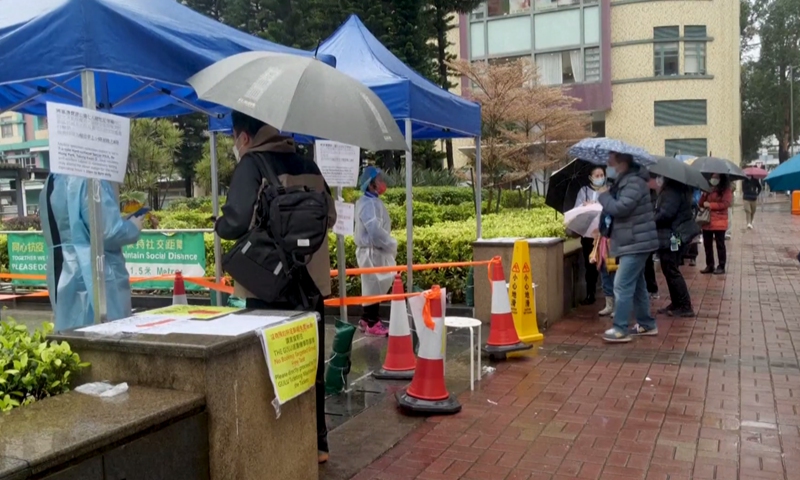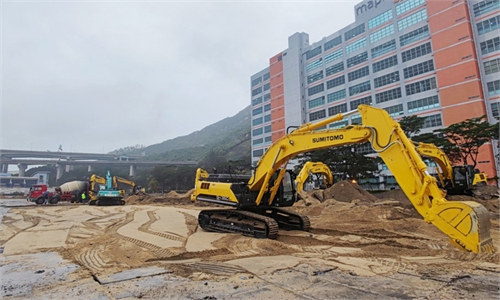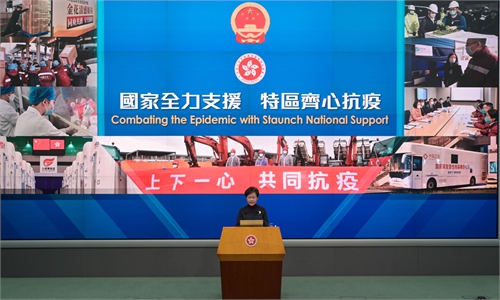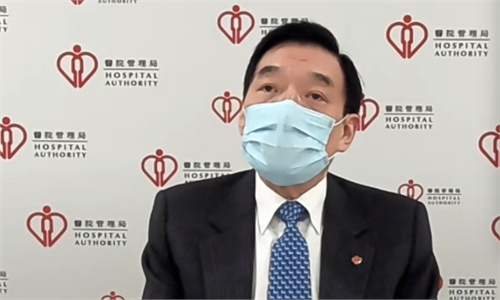HKSAR introduces new emergency regulation providing legal basis for central govt's anti-epidemic aid amid rising cases

Residents in Hong Kong line to take nucleic acid test. Photo: VCG
The government of the Hong Kong Special Administrative Region (HKSAR) invoked a new emergency regulation on Thursday to provide the legal basis for anti-epidemic measures, supported by China's central government, amid the city's worsening COVID-19 outbreak. It is the second regulation made under Hong Kong's Emergency Regulations Ordinance after the 2019 face covering ban but in a wider scale.
The regulation came into effect on Thursday and will allow mainland medical workers to work in Hong Kong without passing the SAR's examinations and licensing regulations. This will empower the HKSAR government to make more flexible and rapid use of the mainland's support and resources when needed, and to carry out key anti-epidemic projects at full speed.
The regulation is in effect under the Emergency Regulations Ordinance with the Chief Executive in Council capable of making regulations on situations of emergency or public danger.
Hong Kong recorded 8,798 new confirmed cases on Thursday, hitting a record high amid the latest COVID-19 outbreak. It also reported 50 deaths bringing the total death toll in public hospitals to 460. The occupancy of beds in public hospitals reached 92 percent, according to the Hong Kong Department of Health.
The HKSAR government said that the rapidly deteriorating situation of the epidemic in the city has gone beyond the control capacity of the government, with the city's healthcare system, manpower, anti-epidemic facilities and resources soon to be insufficient to handle the huge number of new cases. This has constituted a situation of emergency and public danger as defined under the Emergency Regulations Ordinance, it noted.
This is the second time since Hong Kong's return to China that the SAR government has enacted regulations under the Emergency Regulations Ordinance after it introduced the Prohibition on Face Covering Regulation in 2019. But the scale of the application of Thursday's regulation is wider.
The new emergency regulation allows the government to exempt certain persons or projects from all relevant statutory requirements in respect of licensing, registration and application, which paves the way for medical staff from the mainland to provide aid in Hong Kong.
The central government sent its first batch of mainland experts to Hong Kong on February 17 and has stepped up its assistance to the HKSAR since then, including increasing the number of daily tests, sending medical teams and testing supplies, building Fangcang makeshift hospitals, and ensuring daily necessities.
Priscilla Leung Mei-fun, a lawmaker and a member of the Basic Law Committee, told the Global Times on Thursday that the emergency regulation will help to remove institutional and legal obstacles for the mainland medical teams to come to aid Hong Kong at a time when the city has reached the point of break down.
She said it is hopeful that further steps can be taken as quickly as possible to prepare for a possibly escalating epidemic situation.



